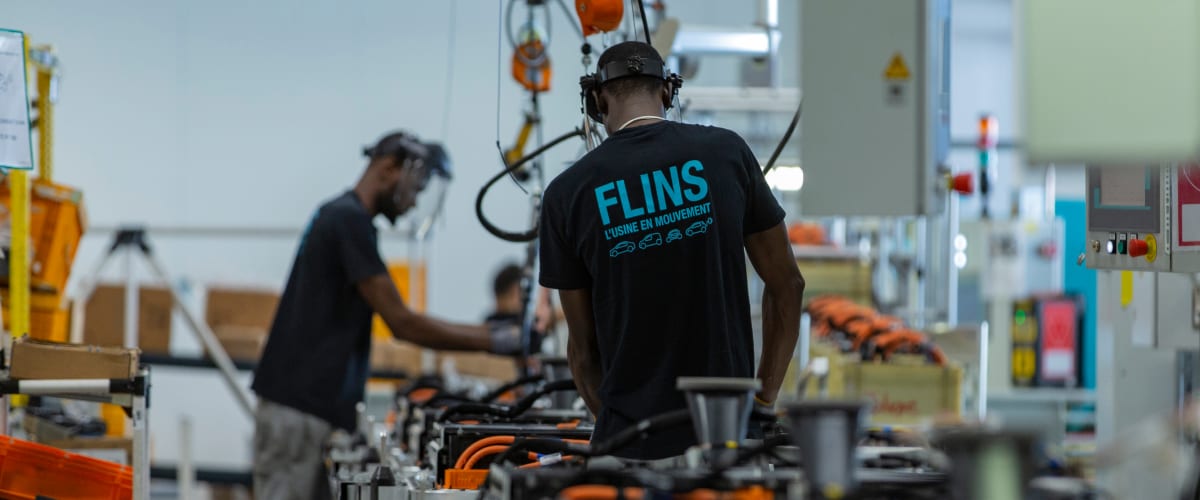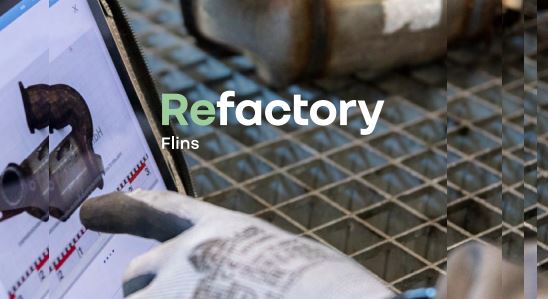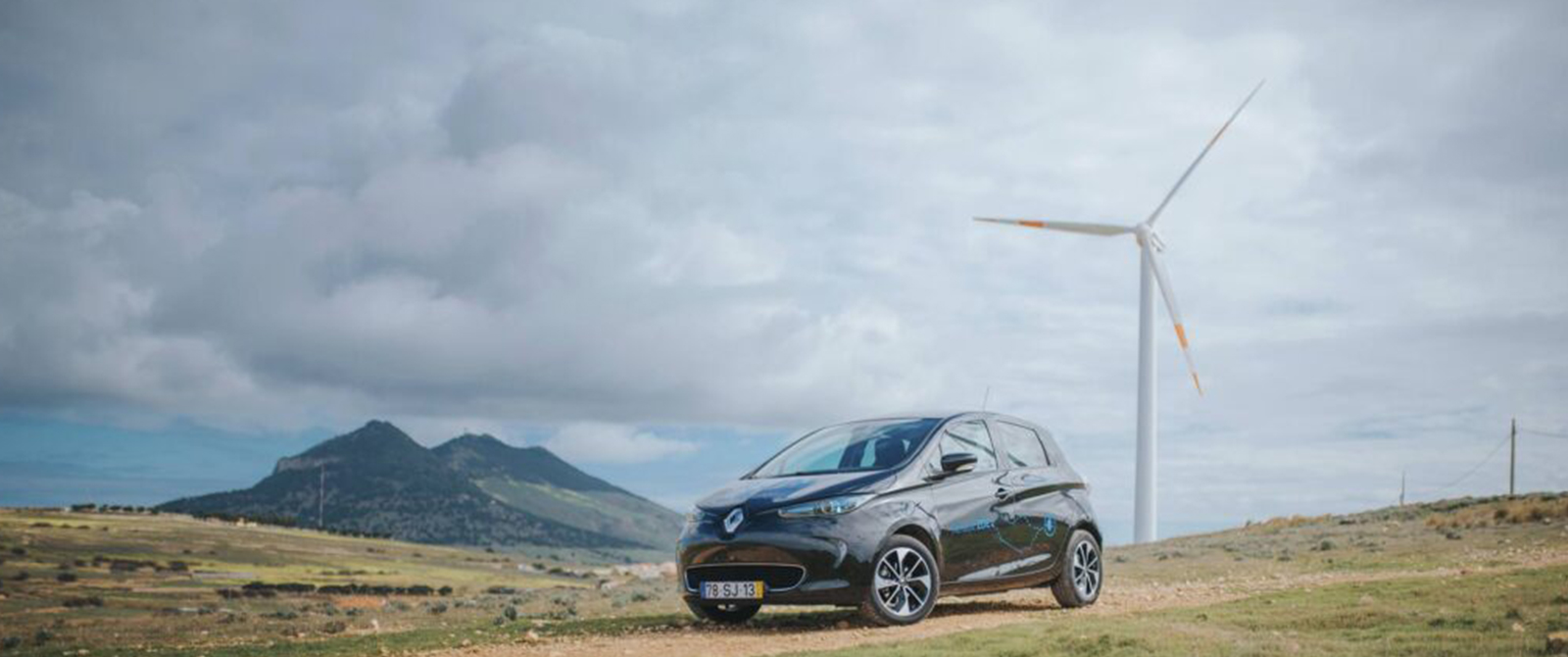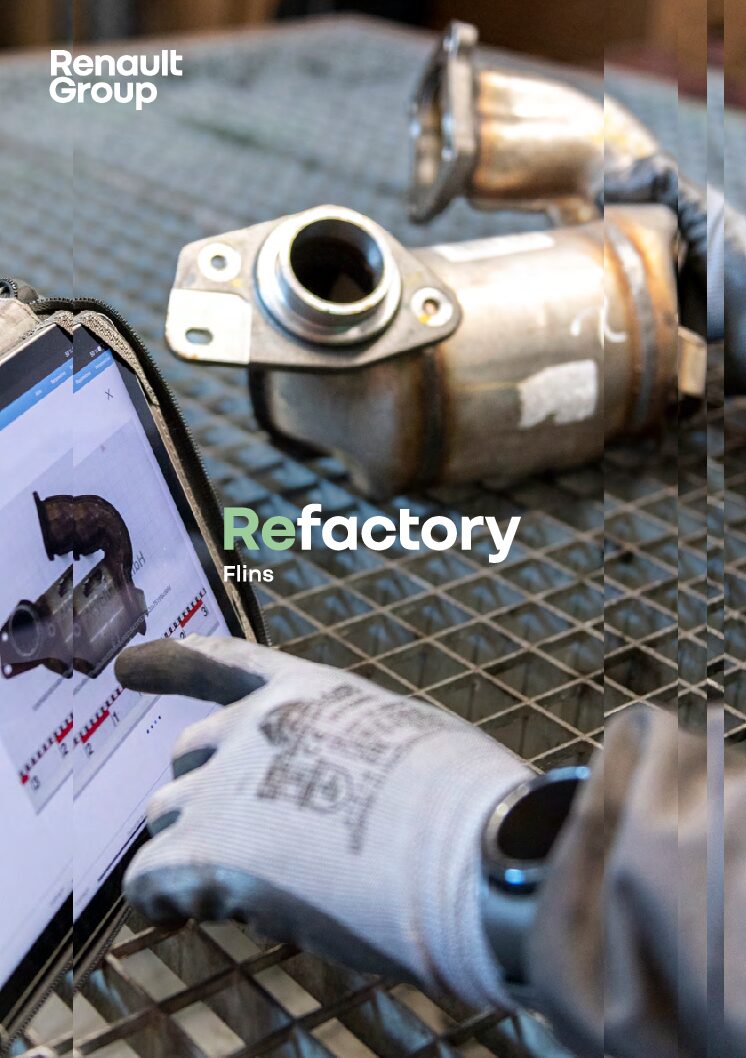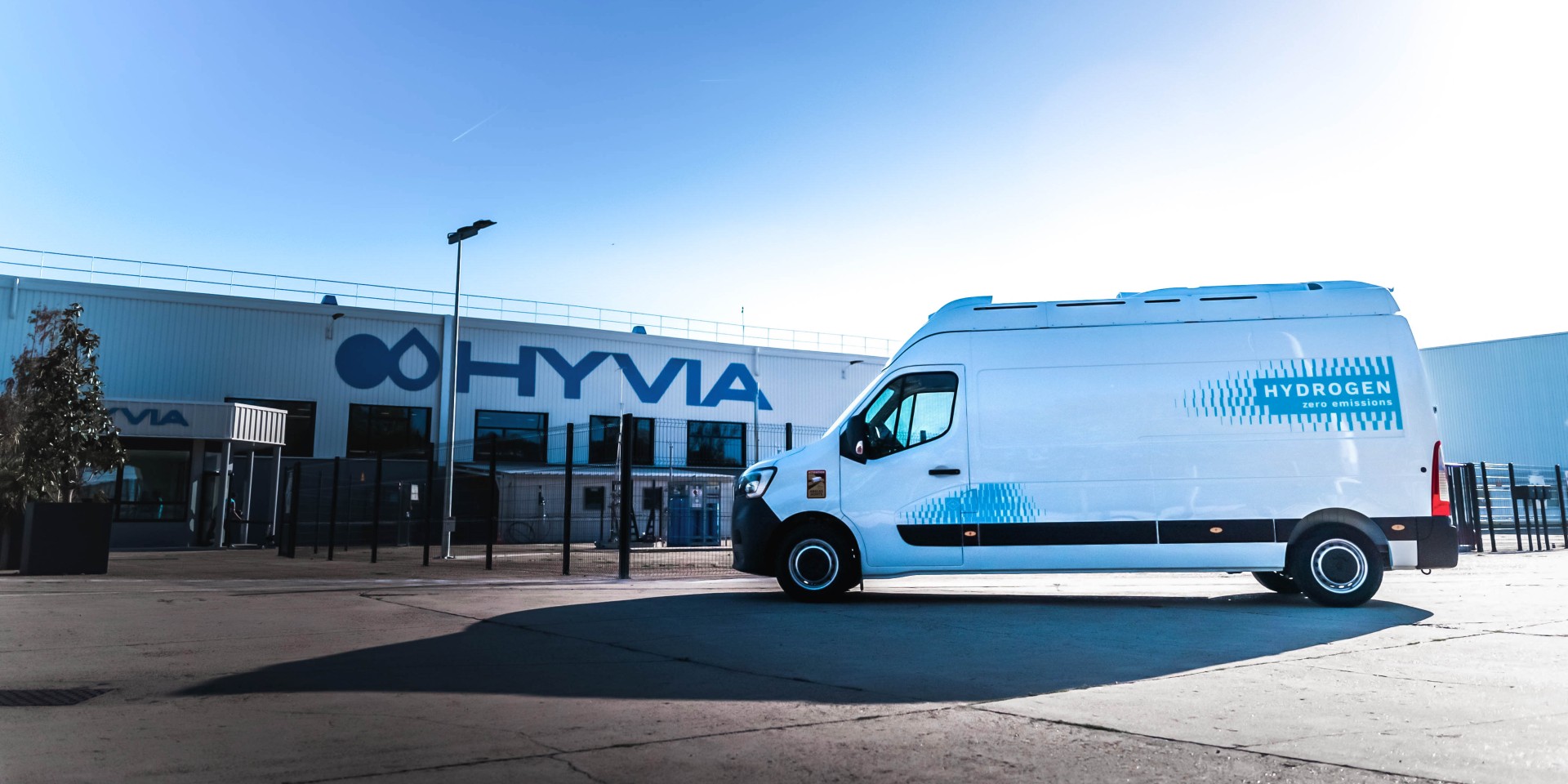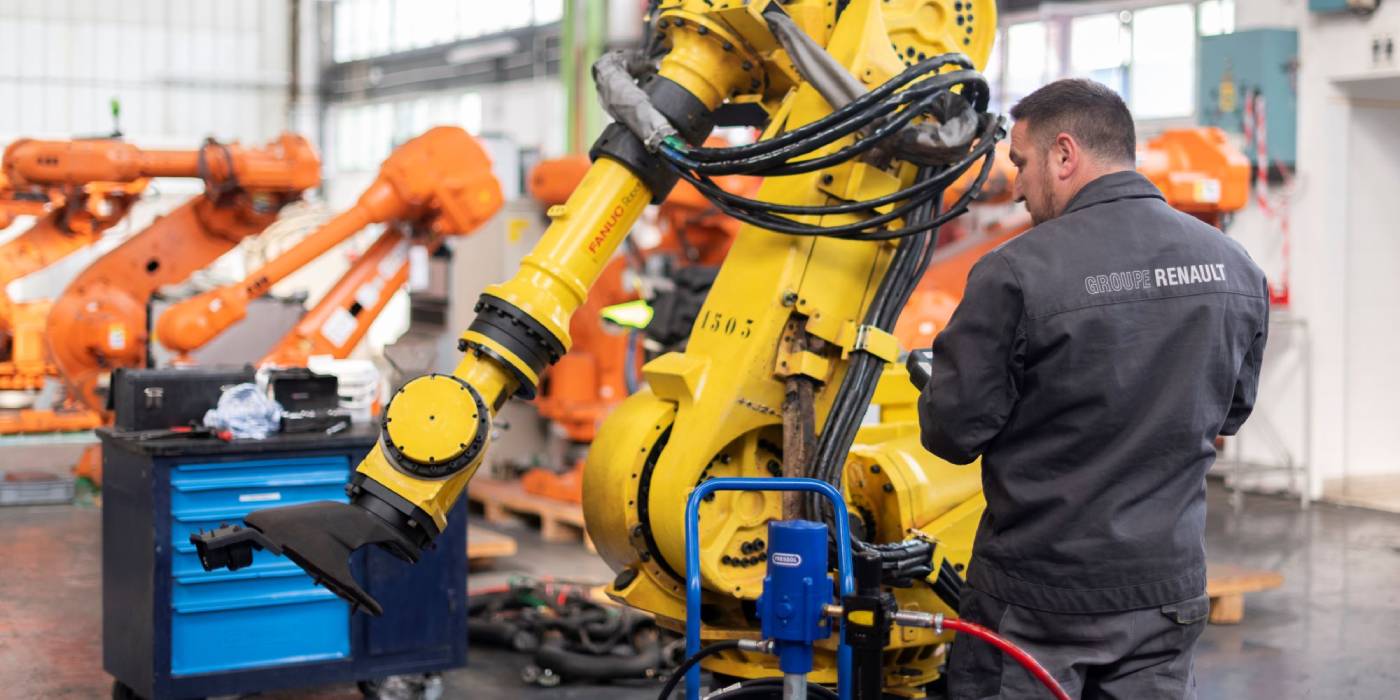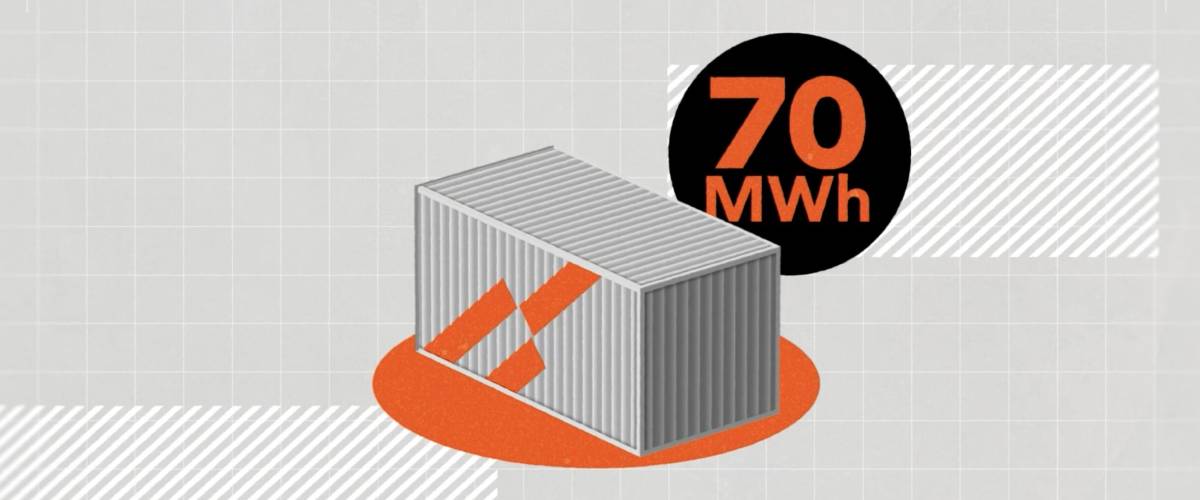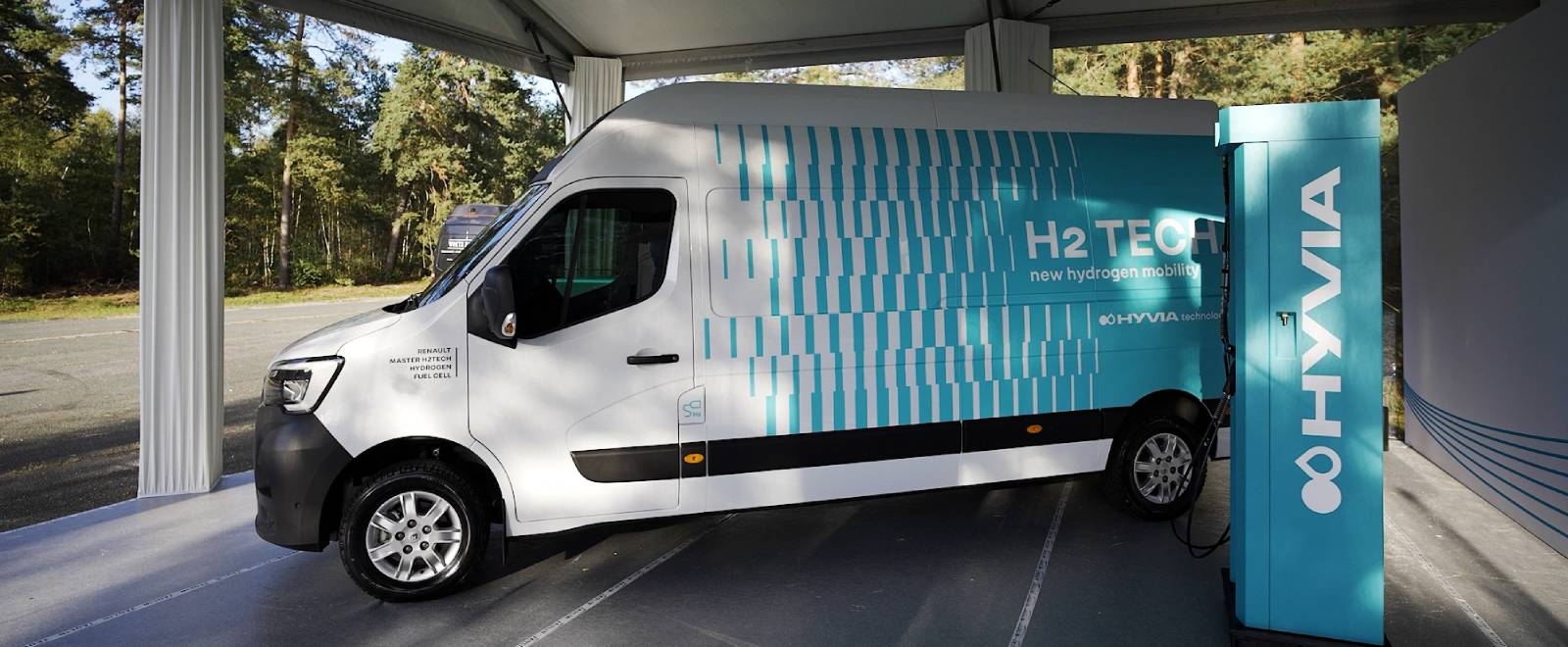

To achieve this, we are creating the first Refactory in Flins. Having designed models that have marked our history, the factory takes another turn to become a site entirely dedicated to the circular economy. A first in Europe. With the Refactory, we want to reinvent ourselves to develop accessible, sustainable, carbon-free mobility solutions for everyone. Ready to follow us in this never-ending adventure?
Our definition of refactory
The Refactory is Europe's first circular economy factory dedicated to mobility. An industrial and commercial ecosystem created by Renault Group, open to start-ups and partnerships. Its objective is to encourage initiatives, develop innovation in the service of the circular economy, and to contribute to Renault Group’s ambition to achieve carbon neutrality at its industrial sites in 2040 in Europe. A sustainable and responsible reconversion, both environmentally and socially, built on the many assets of the site and its collaborators.
Set ahead for 2024!
This transformation plan is being rolled out gradually from 2021 until 2024. The site is organised around 4 activity centres, each with its own field of expertise: Re-trofit, Re-energy, Re-cycle and Re-start.
Re-trofit: extending the life of vehicles
It's a fact. The second-hand market expanded strongly in 2021, driven by the awakening of an ecological awareness and new modes of consumption, which favour use over possession. To further pursue this path, we wish to bring together the areas of expertise required to extend the lifespan of vehicles and their uses. Our challenge: to succeed in preserving resources through efficient management of the flow of reuse of parts and materials on the same site.
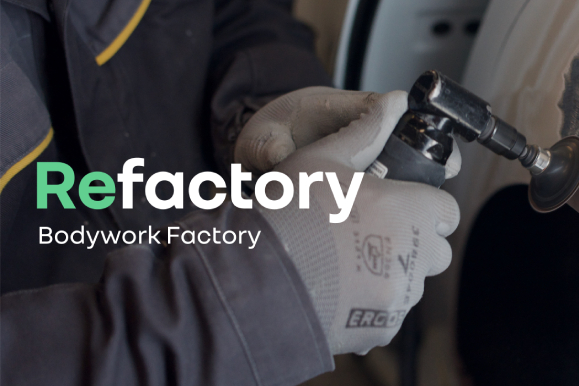
For the fleets and insurance companies, a new body repair activity for heavily damaged vehicles will be launched at Refactory at the end of next year. This pole called Bodywork Factory will repair 3,000 vehicles in 2023 to reach up to 25,000 vehicles in 2025.
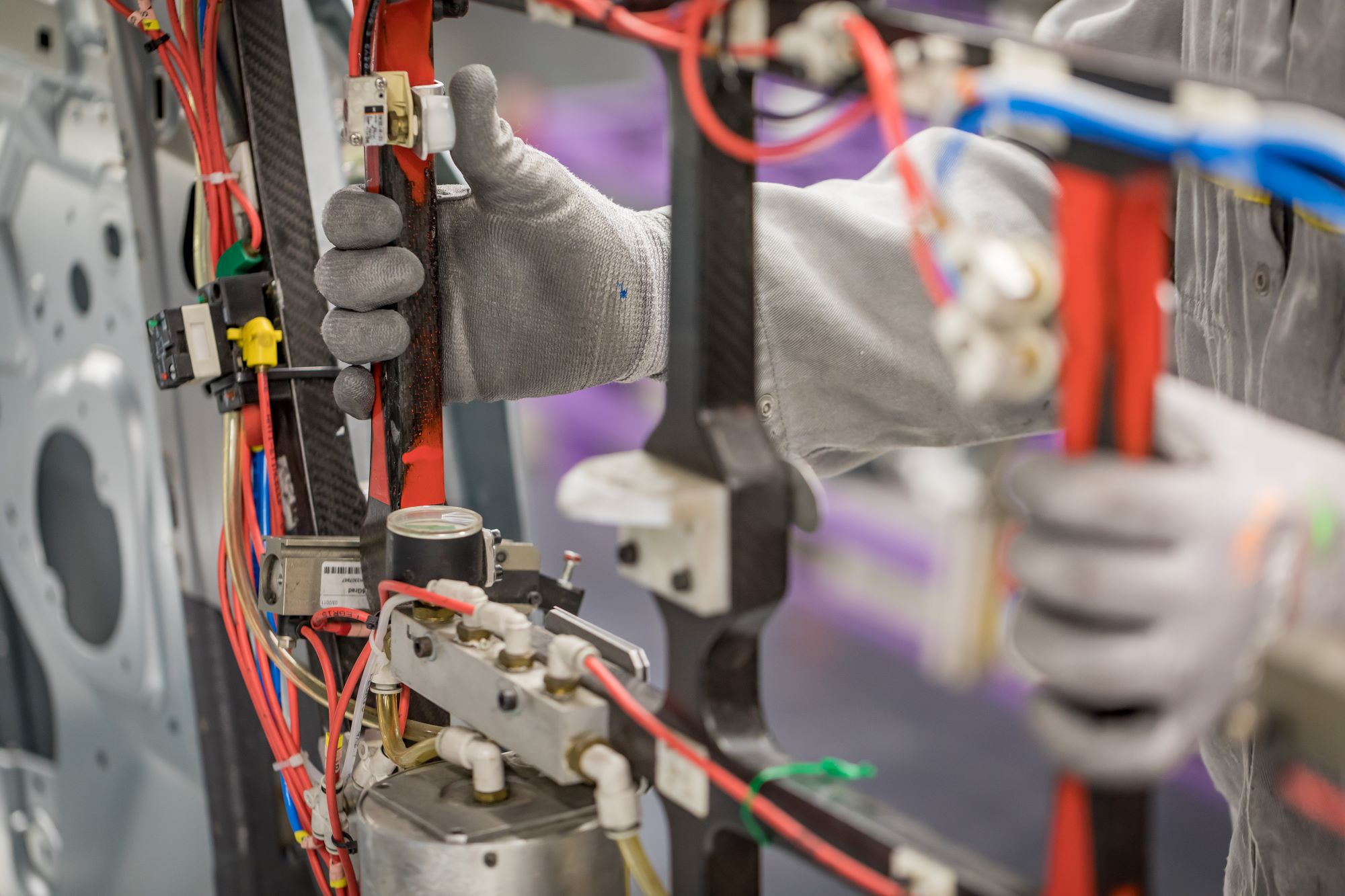
Another observation: environmental regulations are becoming stricter in cities. Re-trofit wishes to capitalise on the Group's industrial structure and expertise to develop an attractive offer for the conversion of combustion motor vehicles to other, less carbon-intensive energies. This approach, implemented thanks to the partnership signed with Phoenix Mobility, is aimed primarily at professional customers, to convert commercial thermal vehicles to electric.
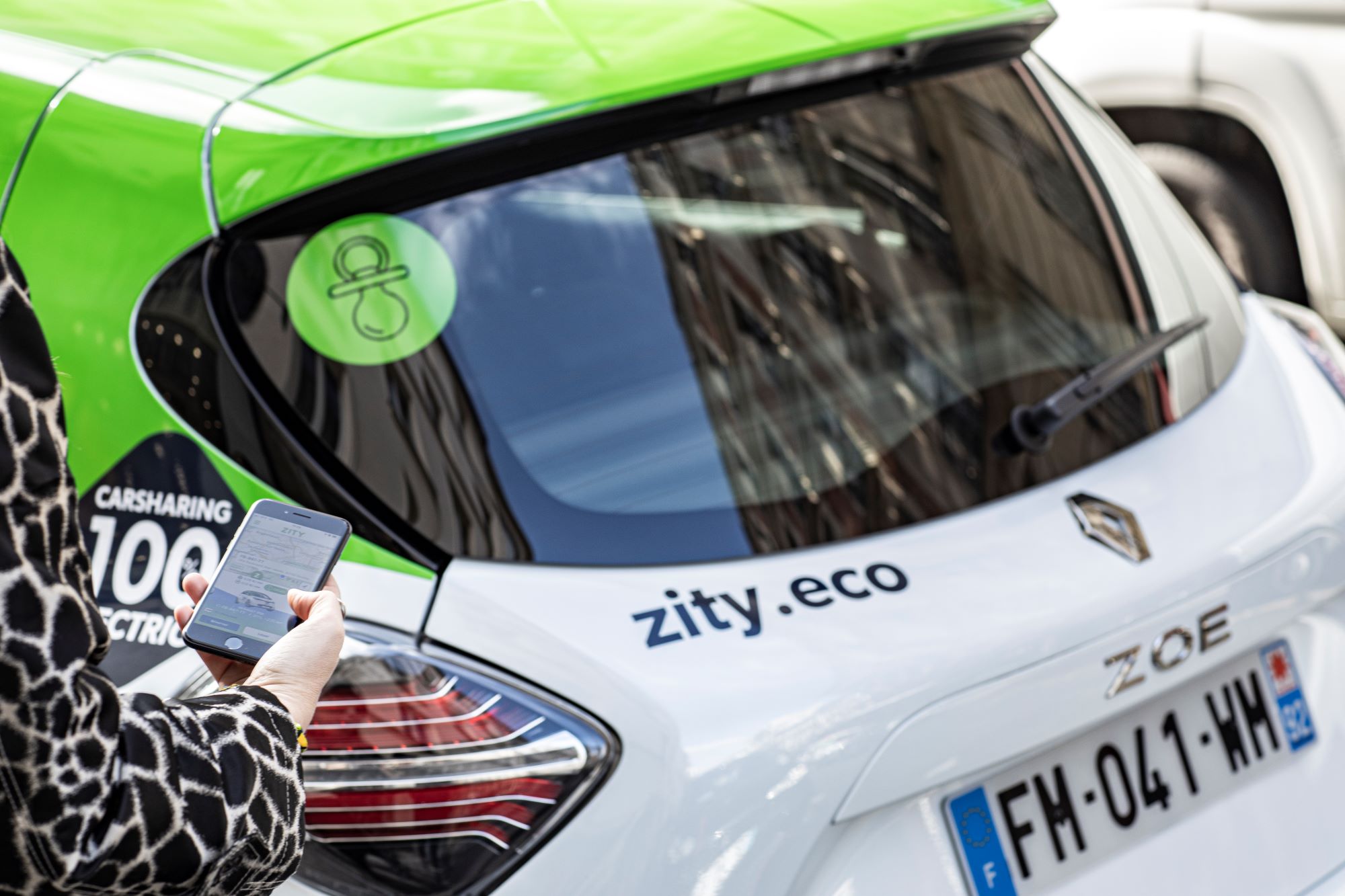
The division extends its services to vehicle fleets and shared mobility players, such as the ZITY electric car-sharing service.
Re-energy: production, storage & management of green energies
At the heart of the transformation of the automotive industry are electric vehicle batteries. And above all, the challenge of their life cycle, which is crucial for the environment. Hence the ambition of this cluster to strengthen the collection of batteries, to prepare them for their second life, and to develop portable or mobile storage systems. Not forgetting to develop maintenance and recharging services dedicated to new energies.
THE FLINS CENTRE AIMS TO REACH A CAPACITY OF
20,000 ELECTRICAL BATTERY REPAIRS PER YEAR 2030, 2030THANKS TO THE DEVELOPMENT OF AN INDUSTRIAL STRUCTURE.
The Flins factory is a reference in this field. It is there that, from 2011, industrial techniques for repairing electric vehicle batteries were created, before being distributed in 17 countries.
At the end of its first life in the vehicle and well before recycling, the battery provides an indispensable solution for renewable and intermittent energies: electricity storage.
New operating opportunities such as stationary storage make it possible to perpetuate this service. In this case, the battery makes it possible to integrate electricity from solar or wind power, on the scale of a house, a building, or even an industrial site. Several of the Group's experiments illustrate this approach:
In Porto Santo, stationary storage is ensured thanks to second-life Renault ZOE batteries, thus reducing the island's dependence on fossil fuels, while promoting renewable energies;
Two very large-scale energy storage projects (Advanced Battery Storage in France and Germany, and SmartHubs in the UK) have been initiated to reduce the gap between electricity consumption and production, and increase the share of renewable energy in the energy mix;
Reconditioned batteries have begun a second life on board cruise ships on the Seine in Paris (electrification of the Paris Yacht Marina fleet) and soon on board sailing cargo ships for transoceanic journeys (Neoline project).
BETWEEN 2021 AND 2030, THE SECOND LIFE BATTERIES SOLD BY THE GROUP WILL REPRESENT AN ANNUAL CAPACITY OF MORE THAN 200 MWH, THE EQUIVALENT OF 4 000 FULL CHARGES OF A RENAULT ZOE.
Batteries at the end of their life are systematically recycled. With the support of our subsidiary Indra, since 2013 we have developed a long-standing partnership with Veolia for the recycling of batteries, from which metals are recovered after dismantling.
Re-cycle: optimising resource management
Good news. In line with regulations, the automotive industry in Europe has high rates of recycling and recovery of End-of-Life Vehicles (ELVs), as well as a high proportion of recycled materials in its new products, compared to other sectors. But we can always do better, can't we? The Group already incorporates an average of 30% recycled materials in its vehicles produced in Europe, and we want to go further. We want to continue to increase the recycled materials integrated into the production of new vehicles, while reducing procurement costs and the impact on resources.
Re-start: innovation made accessible for all
The ambition of this centre focuses on enhancing and developing skills, while accelerating research and innovation in the circular economy. Thus, Re-start is hosting an incubator for start-ups and partners, as well as a university and training centre, to reinforce the specialisation of the professions present within the Refactory. The training pole is also designed to promote the inclusion of people who have left the school system, to promote their access to employment.
An incubator open to all
The Refactory in Flins is integrating an incubator open to start-ups to develop or co-develop innovative projects. It will include a space for in situ experimentation on industrial installations, in collaboration with experts from different fields (vehicle architecture, materials, electric vehicles, energy, recycling, lean manufacturing...).
An Industry Innovation Centre
To support the incubator’s work, Refactory has an Industry Innovation Centre, whose skills are based on five activities:
- the development of new industrial processes,
- retrofitting of industrial equipment, in particular robots,
- the collection of machine data within the Control Tower for predictive maintenance,
- parts additive manufacturing with 3D printers
- prototyping of commercial vehicles.
In order to support employees in this transformation plan, the project plans to develop knowledge and skills through its Mobility Circular Industry Campus, in three areas:
GLOBAL TRAINING CENTRE
Created in 2010 in FLins, this international vocational training centre has until now specialized in industrial techniques. It now offers new modules to meet training needs within the Refactory, the Group and outside the company.
CREATION OF ACADEMIC TRAINING
On the scale of the automobile sector and industry, Refactory also intends to contribute to the creation of academic training, such as the creation of a Certificate of Trades and Qualifications (CQM). In order to share know-how more widely and design training courses that meet the needs of the industry of the future.
PARTNERSHIPS IN APPLIED RESEARCH
In the field of applied research, partnerships will be set up with consortia of schools and universities to boost innovation in the circular economy. By promoting concrete experimentation and direct immersion in an industrial field, the Group wishes to encourage research in the scientific field and in the human and social sciences.
Pioneer of the circular economy - 70 years of experience
Since its beginnings, Renault- Group is committed to making cars that last a long time.
- As early as 1949, Renault developed the circular economy, with the remanufacturing of its parts at Choisy-Le-Roi (Yvelines, France).
- In 1993, the Group incorporated recycled plastics into its vehicles.
- In 2008, it developed a capital-intensive approach that is unique in the sector, through partnerships and equity investments in activities 100% dedicated to the circular economy.
- Today, it is the only player in the automotive industry to have built a complete industrial and commercial circular ecosystem. A lever for sustainable competitiveness, which meets the high expectations of its partners and stakeholders, including the Ellen MacArthur Foundation.
